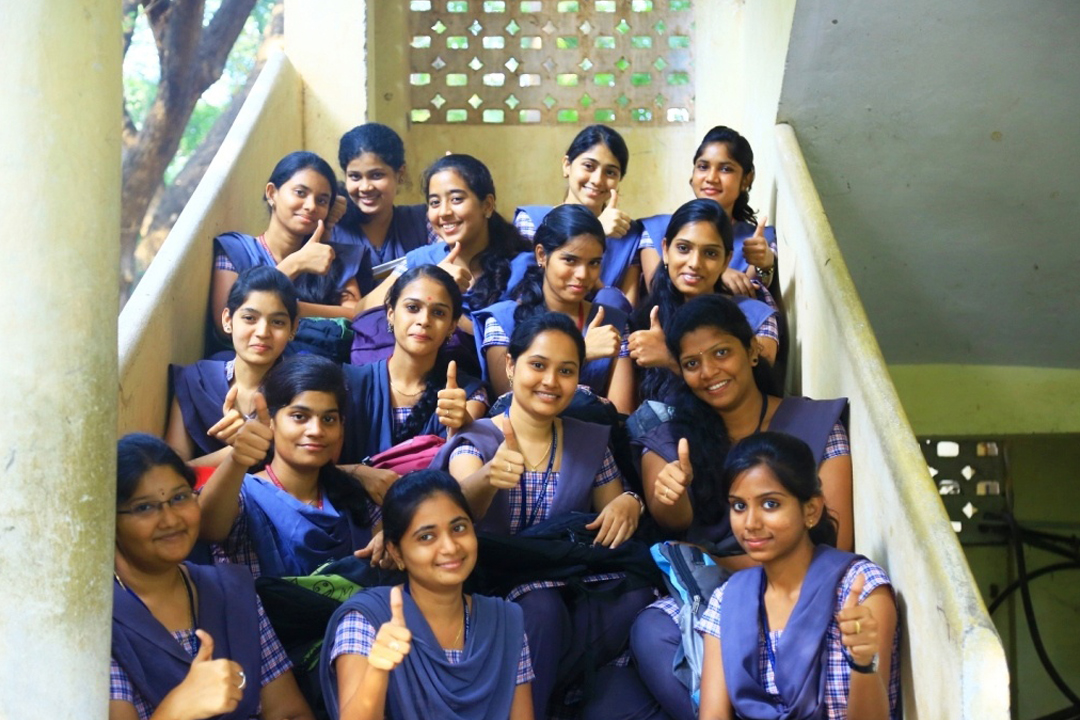
Yesterday, May 28, was Menstrual Hygiene Day, celebrated to break the silence that surrounds menstruation, raise awareness, change negative social norms, and catalyse political action around menstrual hygiene. Above all, it’s to empower girls to menstruate safely, hygienically, with confidence and without shame about a normal, natural process.
Managing periods can be challenging for physically or intellectually disabled girls and women, so we invited Dr Monalisa Padhee, Program Head, Women Wellness Initiative and ENRICHE Health at Barefoot College, Rajasthan, to share her thoughts on menstrual hygiene management in a (Hindi) webinar facilitated by Dr Shubha Nagesh, Director, Follow-up, at the Foundation. In addition to our own Project Heads and other staff, we were joined by several moms and their teenage daughters from our centers.
Here, in a nutshell, are some of the main points of discussion:
What are some of the common misconceptions about menstruation?
Girls are unclean during their periods. Menstrual blood is impure. Strict dietary restrictions must be imposed, girls must avoid exercising during this time….
It’s important to bust these myths because of their negative impact on girls’ physical and emotional health, and lifestyle, and explain, in a way that they can understand, the facts about puberty and reproductive health, preferably before their first period, depending on their ability to understand.
What type of food should you eat during your period?
A simple, healthy diet is important for growing children and adolescents of both sexes, so if your meals are nutritious, there’s no need for major changes. Try to eat iron-rich foods, fruit, nuts and lots of leafy greens like palak and methi. Eating meat and fish, if you’re a non-vegetarian, is also alright.
Is it okay to exercise during your period?
It’s important to be as active as possible both on and off your period. Exercise between periods is known to strengthen the uterine muscles and reduce pain or discomfort in the long term.
How should I manage pain during my period?
Some discomfort is common during your period. To reduce period pains and cramps, try walking or doing some light exercise, or use a hot water bag or electric heating pad. Consult a doctor if the pain is severe, but remember that painkillers are not safe if used too often or for too long. Some women report having good results with homeopathic medication.
How can I keep track of the date of my next period?
There are several methods — apps (Flo, Clue), good old fashioned calendars, and the innovative chooris that even girls who can’t read can use. Remember that it can take several months for your menstrual cycle to become regular.

What about menstrual hygiene products?
The choice of products depends on comfort and cost. Choose from commercially available sanitary napkins, tampons or menstrual cups, or use clean cloth pads made at home. These are reusable and safe as long as they are changed frequently, washed thoroughly and left to dry in the sun or ironed, to kill any residual germs. Pads should also be changed every six hours, at most, even on the last day when you’re only spotting a little. Bathing every day is advisable, and there’s no problem if you wash your hair. To avoid vaginal infection, always wash from front to back.
Girl talk?
Actually, no. Menstrual health and hygiene is a taboo subject to the detriment of the health of millions of girls and women, so it’s time to begin talking about it openly, not just with other girls and women but male family members as well. Break the silence! Break the shame!
If you missed the webinar but have any questions, please put them in the comments section below, and we’ll get back to you right away!


